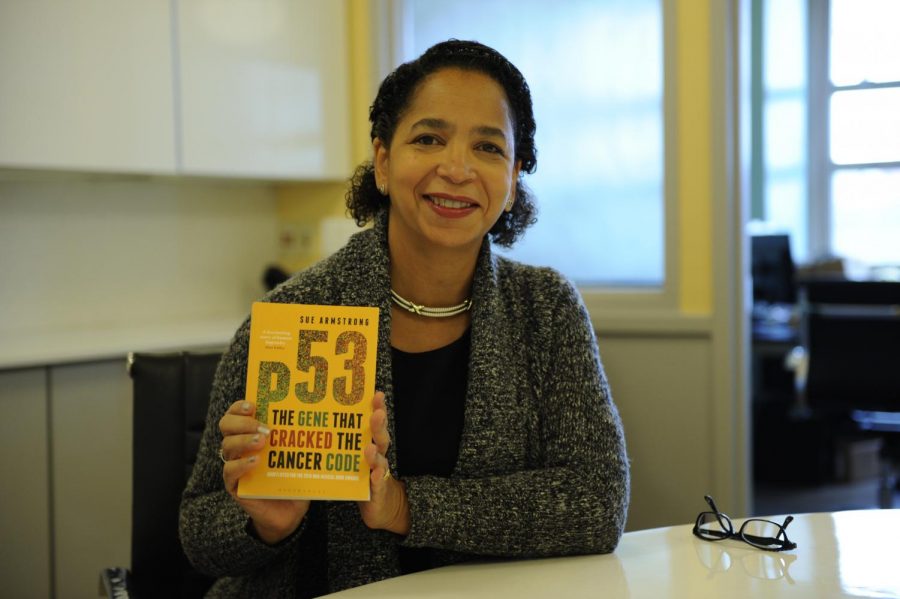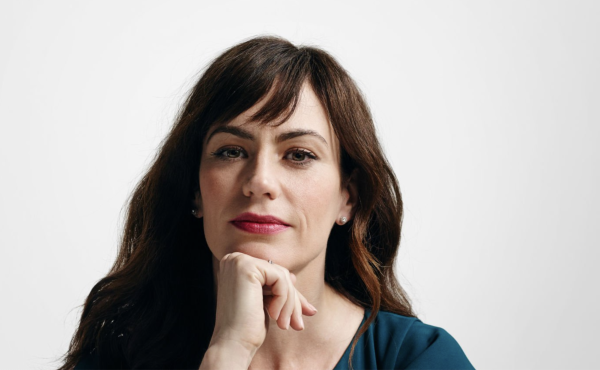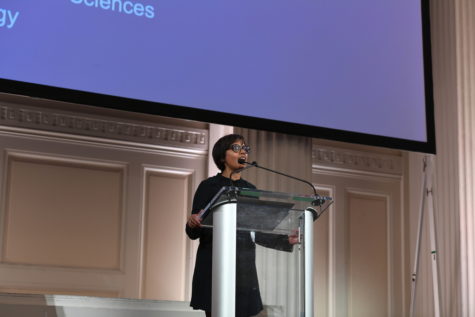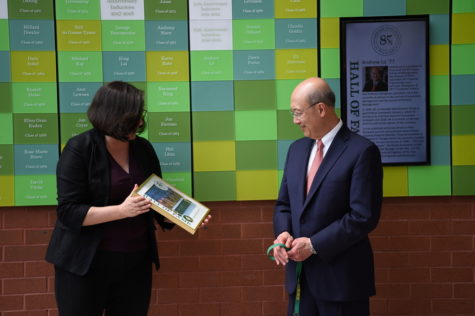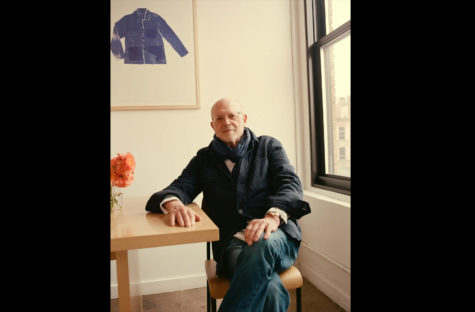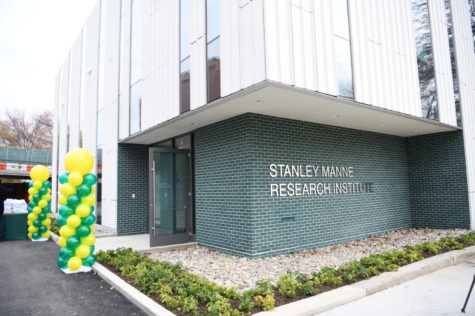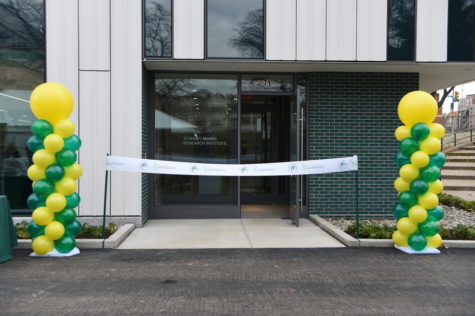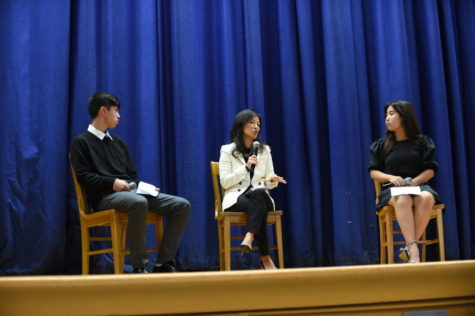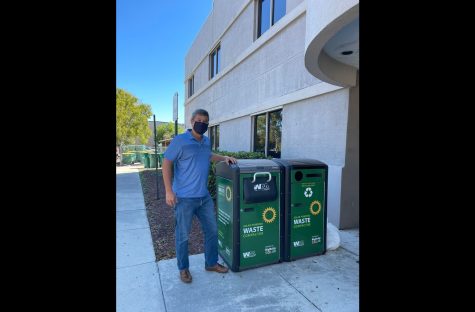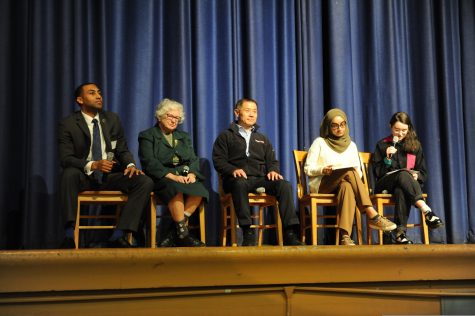Jill Bargonetti ’80
Recognizing a Dancer-Turned-Researcher
Dr. Bargonetti poses with the book written about her biggest discovery.
Now an award-winning cancer researcher who teaches at Hunter College, Dr. Jill Bargonetti ’80 was once a Bronx Science student who dreamed of becoming a dancer.
On November 16, 2017, Bargonetti returned to Bronx Science for her Hall of Fame Induction, in honor of the school’s eightieth anniversary, where she met with students throughout the day and sat for an interview for The Science Survey.
Dr. Bargonetti was born and raised in New York City, attending Hunter College Elementary and High Schools before going to Bronx Science. From there, she attended SUNY at Purchase, where she was originally a dance major. Soon Bargonetti studied with Alvin Ailey, a legendary dance troupe based in Harlem. This further fueled her dance aspirations, until her acceptance into a professional dance troupe forced her to switch her major to biology.
After receiving her Bachelor’s Degree, she earned her Master’s Degree and PhD at NYU and her Postdoctoral Fellowship at Columbia University. In 1994, she became an Assistant Professor at Hunter College and has worked her way up to Full Professor and Chair of the Molecular, Cellular, and Developmental Biology PhD program at the CUNY Graduate Center.
What Dr. Bargonetti is most famous for, however, is the discovery of the crucial role the p53 protein plays in tumor suppression. Prior to her research, scientists knew of the existence of the p53 protein but had no idea what role it played in metabolic processes.
Dr. Bargonetti’s research in 1991 revealed that the protein helped to spur apoptosis (programmed cell death) in damaged cells. What further supported this hypothesis was the fact that, in most tumors, the DNA for the p53 protein had mutated in some way. Dr. Bargonetti’s discovery was a giant breakthrough in cancer medicine and has become textbook knowledge in biology and medical school courses.
Dr. Bargonetti has credited much of her scientific ingenuity to her background as a dancer.
“Dancing still has a really big role in my life. I think very spatially as a scientist, and I still take some dance classes. I teach a class at Hunter College called ‘Choreographing Genomics,’ where I use movement to teach information flow through post-modern dance,” Dr. Bargonetti said.
“I try to inspire through being a role model and just being there when they need to talk about things. I think seeing that women can run laboratories and be professors is good for students. I work at CUNY, which is a public college where we have a lot of first-generation college students, so I think it’s really important for them to see that — for men and women — that women can run labs and women can be professors,” Dr. Bargonetti said.
All of her success in her field has earned Dr. Bargonetti many awards, including but not limited to the Presidential Early Career Award for Scientists and Engineers, from former President Bill Clinton in 1997, the 1997 Kathy Keeton Mountain Top Award from the New York branch of the NAACP, and the Outstanding Woman Scientists Award from the Association for Women in Science.
“I think the Presidential Early Career Award is the award that I’m most proud of,” Dr. Bargonetti said, laughing. “That was the beginning of realizing that maybe the things that I was doing were pretty important after all.”
Dr. Bargonetti was eager to note that the award had been presented by President Clinton’s Head of Science and Technology Policy, a position that has not been filled by the current administration. As a result, the current president has not met with this year’s American Nobel Prize Winners.
While Dr. Bargonetti had not dreamed of becoming a legendary biologist during her tenure at Bronx Science, she did credit it for “instilling a love of biology” in her. She was also very fond of the Women’s Studies class she took here, which helped her “to recognize that women could do many different things and that feminism was a good thing.”
When asked how she thinks that she inspires others, Dr. Bargonetti was quite humble.
“I try to inspire through being a role model and just being there when they need to talk about things. I think seeing that women can run laboratories and be professors is good for students. I work at CUNY, which is a public college where we have a lot of first-generation college students, so I think it’s really important for them to see that — for men and women — that women can run labs and women can be professors,” Dr. Bargonetti said.
Her final advice to people who want to pursue STEM and research: “be patient.”
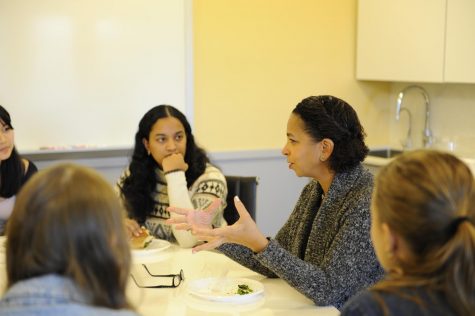
Dr. Bargonetti discusses her work over lunch with students.
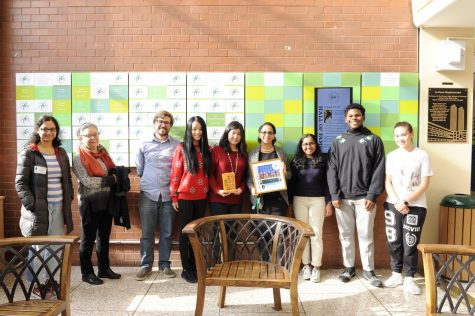
Dr. Bargonetti poses with students in the Hall of Fame after the induction ceremony.
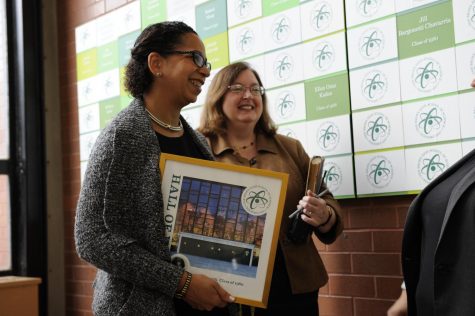
Dr. Bargonetti poses with Dr. Donahue in the Hall of Fame after the induction ceremony.
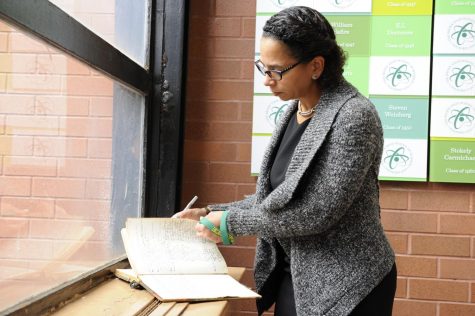
Bargonetti signs the Book of Honor at the conclusion of her induction ceremony into the Hall of Fame.
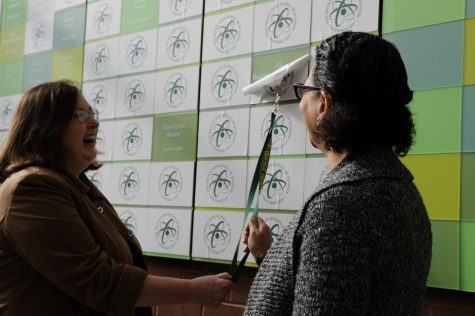
Bargonetti helps Dr. Donahue unveil her name on the Wall of Honor at the start of her induction ceremony.
Sinaia Keith Lang is a Managing, Advisory, and Copy Editor for ‘The Science Survey’ newspaper and an Editor-in-Chief of ‘The Observatory’ yearbook....
Johan Wichterle is a Chief Photographer and Photography Editor for ‘The Science Survey’ and ‘The Observatory.’ Throughout his life, Johan...
Ben Wade is the Chief Photographer and Photo Editor for both ‘The Science Survey’ and ‘The Observatory’ yearbook. He takes photos of students and...

